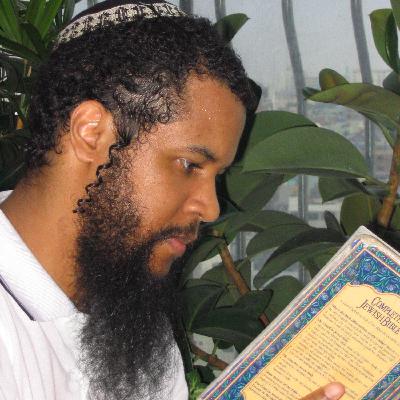39 Hukkat (Part B) - Regulation - Numbers 19:1-22:1
Update: 2015-05-11
Description
From Kadesh to Moab – Disobedience, Death, and Desert Dilemmas The parashah goes on to narrate the tragic story of Moshe’s disobedience. Chapter 20 records for us the sobering reason as to why this otherwise stalwart leader succumbs to human weakness. It is true that he was incredibly faithful to perform all that HaShem asked him to do. Yet, even Moshe was not perfect. The pressure mounted and in a moment of anger and indecision, he struck—twice, when he was commanded to speak. Thus, he dishonored HaShem in the sight of all Isra'el. For this, HaShem would not allow him to enter into the Land that he was leading the people to. He would only be allowed to gaze at it from afar. What lessons can be learned from this? HaShem is a merciful God! In spite of Moshe’s disobedience, water did indeed flow from the rock to meet the community’s physical need. Yet, along with God’s mercy, we see a reminder of his requirements of responsibility especially where chosen leaders are involved. Moshe was in what is known as a “high visibility” position. The greater the calling the greater the responsibility. Moshe was not in a position to be blatantly disobeying HaShem. His call was a higher one, and therefore, God expected more from him. Remember that this was the man of whom the Torah says he spoke to God “face to face” and “mouth to mouth”. In our Torah portion we read of the deaths of two of the community’s great leaders, two from the same family no less. Miryam the sister and Aharon the Cohen HaGadol both die in chapter 20. In the case of Miryam, we saw the people’s concern for her demonstrated a few parash’ot ago, when, as she contracted tzara’at (leprosy) they all waited while she remained outside the camp before moving on with their travels. Here in the later part of chapter 20, Isra‘el mourns Aharon for thirty days, as his son El’azar takes on the awesome responsibility of his father’s place in the community. “Are we there yet?” Having warned the people about their coming days of lawlessness (verses 16-18 of D’varim chapter 31), HaShem then commands Moshe to teach them a song of remembrance (verse19-22), which will serve as a witness for their God, against the people of Isra’el. The actual song itself is recorded for us in Chapter 32. So why does HaShem keep reminding them of their upcoming failure to obey him? From a cursory glance, it appears rather pessimistic and disheartening. In fact, it may strike the average reader as being too harsh and challenging, similar to the seemingly insurmountable challenge that awaits the people as they endeavor to enter the Land of Promise. But we need to understand the heart of the Father here. His (loving) chastening does appear, at first, to be too much for us to bear, but as we begin to see the “big picture” we will understand it more. The Torah is HaShem’s measuring rod for disobedience. To be sure, this is what he said in D’varim 31:26 . Even the New Covenant Scriptures echo this same teaching consistently throughout the above-mentioned book of Romans. This happens, the Torah teaches us in both the TaNaKH and the B’rit Chadashah, “in order that every mouth may be stopped and the whole world be shown to deserve God’s adverse judgment. For in his sight no one alive will be considered righteous…(Psalm 143:2; Romans 3:19 ).” Now this specifically applied to those within the framework of the Torah, of which the Jewish Nation surely was! The budding young nation that we read about in our current parashah had already begun to live within that framework, which was initiated at the “Mount Sinai experience”. HaShem was training them to become dependant upon his grace alone to get them out of “hot water”. The enemies that they would encounter on their way “Home” would indeed be “hot!”
Comments
In Channel





